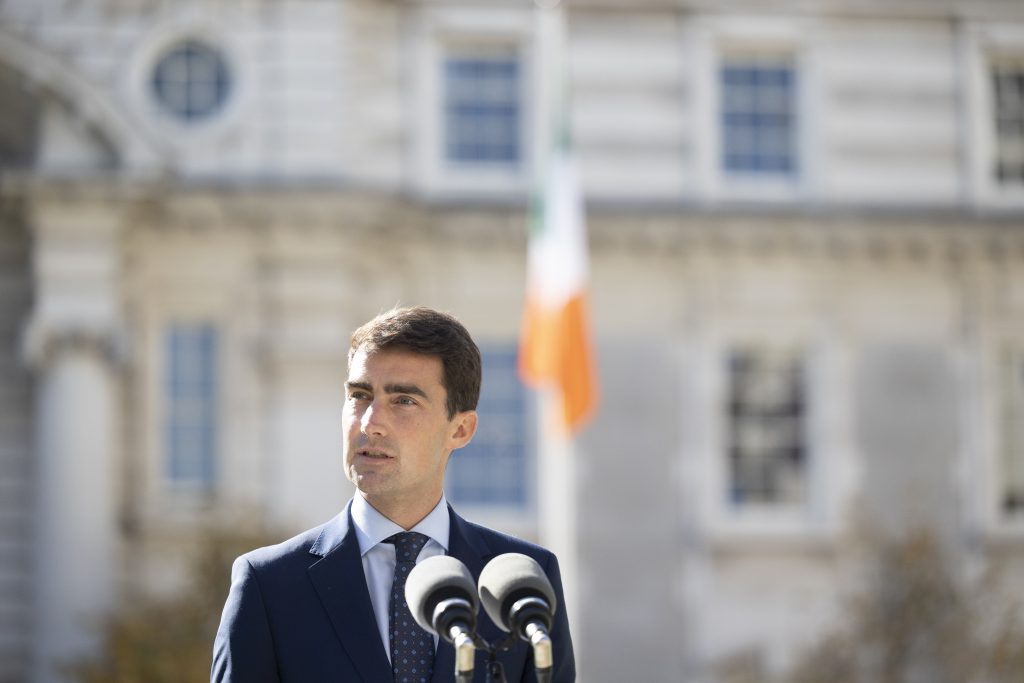In a strategic move ahead of upcoming elections, the Republic of Ireland’s finance minister, Jack Chambers, has unveiled a budget featuring personal tax reductions and initiatives to alleviate the cost of living. This announcement comes amid increasing speculation that elections may occur before the end of the year.
Recent official reports indicate that Ireland is projected to achieve a €25 billion budget surplus this year, largely attributed to a substantial tax windfall from tech giant Apple. Chambers emphasized that this unexpected revenue will be earmarked for significant investments in infrastructure, with further details to be released early next year. He noted that this financial boost has the potential to be “transformational,” addressing pressing challenges in sectors such as housing, energy, water, and transportation.
“Infrastructure is a fundamental component of Ireland’s competitiveness and is vital for businesses, both large and small, as well as for attracting new foreign investments,” Chambers stated. His comments reflect a broader commitment to improving the country’s foundational systems, which have struggled to keep pace with economic growth.
The budget allocates €8.3 billion towards tax cuts and increases in public spending, along with one-time cost-of-living supports amounting to €2.2 billion. According to Chambers’ forecasts, the domestic economy is expected to grow by 2.5% next year and 3% the following year.
However, the budget has faced criticism from opposition parties. Sinn Féin’s finance spokesperson, Pearse Doherty, characterized the government as “serial wasters,” arguing that the budget fails to adequately address critical issues in childcare, healthcare, and housing. In a statement to the Dáil, he asserted, “People see through the spin. Your job is not to spend money; it’s to get results.”
This criticism highlights a growing frustration among the public regarding the government’s handling of social issues, particularly housing, which remains a contentious topic. The coalition government has been under scrutiny for its performance in this area, with Sinn Féin frequently pointing to the collapse of homeownership rates among young people as a significant concern.
Moreover, the Irish Fiscal Advisory Council (IFAC), the country’s independent budget watchdog, has expressed caution about the government’s spending plans. IFAC has warned that the proposed increase in public expenditure by 7% exceeds the government’s own guideline of a maximum 5% annual increase, raising concerns about potential overheating in the economy.
While inflation in Ireland has recently dipped below 2% due to stabilizing international energy prices, there are emerging signs of inflationary pressure in specific sectors, particularly hospitality. This indicates that while the overall economic indicators appear positive, localized challenges remain.
Since the pandemic, Ireland’s economy has shown resilience, with employment levels reaching record highs and government finances bolstered by a sustained influx of corporation tax revenues. Nonetheless, the need for targeted investment in critical areas such as energy, water, and housing infrastructure is becoming increasingly urgent.
Chambers acknowledges the pressing need for infrastructure development, stating that the government’s focus must shift toward creating a sustainable and competitive environment for future growth. He has emphasized that significant investment in these areas is not just beneficial but essential for the overall health of the economy.
As the political landscape continues to evolve, Sinn Féin has seen fluctuating support in opinion polls. While they initially garnered significant backing, recent months have shown a notable decline. This shift may impact the dynamics leading up to the elections, particularly as public sentiment grows regarding the government’s handling of infrastructure and social issues.
Overall, the upcoming elections will likely hinge on voters’ perceptions of the government’s ability to translate budgetary promises into tangible improvements in everyday life, particularly in housing and social services. With a substantial budget surplus at hand, the stakes are high for both the ruling coalition and the opposition as they navigate the challenges ahead.









